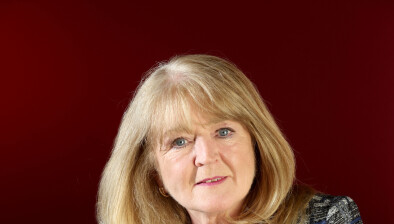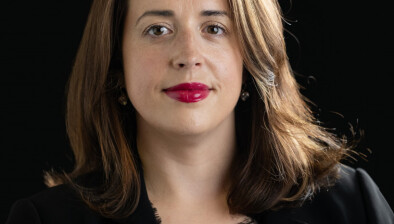NI Court of Appeal: Reduction for ‘excessive’ £71,860 award to 15-year-old sexually harassed by her employer

Northern Ireland’s Court of Appeal has reduced an award made by an Industrial Tribunal in a sexual harassment claim by nearly £20,000.

About this case:
- Citation:[2023] NICA 2
- Judgment:
- Court:NI Court of Appeal
- Judge:Mr Justice O'Hara
The court found that the award was excessive given the short nature of the employment, the lack of evidence relied on by the tribunal, and examples of ‘double counting’ in relation to assessing injury to feelings and psychiatric injury.
This was an appeal by Eugene Geraghty against an award totalling £71,860 made against him by an Industrial Tribunal. The tribunal decided that he had sexually discriminated against and harassed Alona Forose, his then 15-year-old part-time employee in his ice-cream shop.
Anonymity
The first issue before the court was whether the proceedings should have been anonymised. At the time of the original tribunal, Rule 49 Schedule 1 of the Industrial tribunals and Fair Employment tribunal (Constitution and Rules of Procedure) Regulations (NI) 2005 required that proceedings of this nature be anonymous.
By the time the tribunal came to hear the case in 2021, Rule 49 had been replaced by a new rule, Rule 44, which allowed the parties to make applications seeking anonymity. The claimant, now 20, asked the tribunal to revoke the earlier anonymity order, saying that she wanted the truth to be made public, and to empower other women.
The court, agreeing with the tribunal’s decision, decided to revoke anonymity, arguing that justice should be open and public, noting Ms Forose’s wishes, and highlighting that there had already been local media reports about Mr Geraghty’s prosecution.
The tribunal process
After the allegations of sexual harassment were made, Mr Geraghty ultimately pleaded guilty to a single charge of common assault, contrary to section 42 of the Offences against the Person Act 1861. The District Judge imposed a four-month sentence suspended for two years.
A Risk of Sexual Harm Order was also imposed on Mr Geraghty, which prohibited him from approaching or communicating with the victim and her family unless approved. As a result, he could not take part in the tribunal without being in breach of the order.
In response, the tribunal decided that Mr Geraghty and Ms Forose would attend the tribunal in different rooms connected by video link. They also staggered their arrival and departure times, and any questions were written down by Mr Geraghty and put to Ms Forose by the vice-president hearing the case.
The tribunal claimed that Mr Geraghty still had a full opportunity to challenge and test the evidence, and to make submissions, which included his own 24 pages of handwritten questions.
This court accepted that, although this was not a traditional means of cross-examination, it was appropriate given the circumstances. The tribunal did not err in law, but rather devised a structured way forward for the case, which ensured that the appellant received a fair hearing.
Was the total award of £71,860 excessive?
In reaching the £71,860 award award, the tribunal considered a 2020 report by Dr Best, consultant psychiatrist. He diagnosed Ms Forose with “an adjustment disorder, prolonged depressive reaction”, for which the tribunal awarded £41,500 for injury to her feelings.
Also relying on this report, the tribunal awarded an additional £20,000 for what was described as the moderate psychiatric damage which the claimant had suffered.
Finally, the tribunal awarded £6,000 for aggravated damages, which related to Mr Geraghty’s later conduct, which included calling the victim a “scam artist” and threatening to re-open his criminal conviction. The court accepted this approach, but had difficulty with the awards for injury to feelings and psychiatric damage.
The court found that the tribunal had engaged in double counting in relation to the psychiatric damages. Dr Best’s report was considered and relied on in awarding both areas of damages, which, the court concluded, amounted to double counting.
Further, the court found it “impossible to view the awards for injury to feelings and psychiatric damage as anything other than excessive”. Given that they were excessive, the court concluded that it was necessary to interfere with the tribunal’s award.
The court noted that the report also did not take into account Ms Forose’s medical records, which were put before the tribunal but were not relied on or referred to at any point in Dr Best’s report.
Similarly, Ms Forose argued that the harassment had impacted on her education, including her school attendance and GCSE results. However, evidence of her academic performance prior to the harassment was not provided when sought by Mr Geraghty. The court found this to be “entirely unsatisfactory”.
Further, the court noted that Ms Forose had worked for Mr Geraghty on a part-time basis for less than three months. They found that while the harassment was gross and involved a schoolgirl and a much older man, it was difficult to agree with the tribunal’s finding that “it is difficult to conceive of a more serious injury to feelings than the present case”.
Ultimately, the court found that no member of the court would have relied on Dr Best’s report to make an award of £20,000 for psychiatric injury over and above the award for injury to feelings, nor should the tribunal have done so.
Conclusion
The court’s view was that the total award of £61,500 for injury to feelings and psychiatric damage was clearly excessive. The court invoked its power to overturn and substitute the award.
In light of the evidence, the court awarded a total of £40,000 for injury to feelings, including psychiatric injury. It was the court’s view that this remained a significant award and one which adequately reflected the injury to feelings which must have been suffered by the claimant.
As the award of £6,000 was untouched, the total award was reduced to £46,000.











